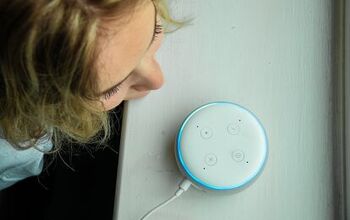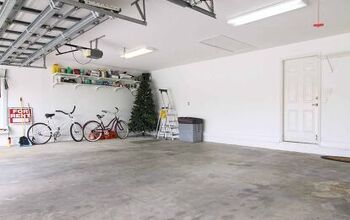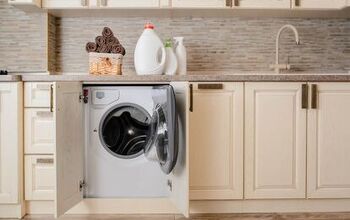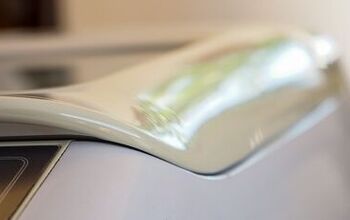A Well-Organized Home Isn’t About The Bins

Clutter, clutter everywhere, and not a place to put it all. Does this sound about right? Are you surrounded by a mountain of stuff that you don’t even remember getting? You think, “No, problem. I just ordered a bunch of bins on Amazon, so I’ll be organized in no time.” Well, it’s time for a reality check; getting organized isn’t about the bins.
Bins won’t solve your organization and storage issues. It’s essential to reduce the amount of things you have before you start trying to organize them. You also need to change your habits when it comes to bringing new things into the home. Decide what items add value to your life and envision the life you want to live.
It’s tempting to roam around The Container Store or IKEA and fill your cart with endless storage solutions. You feel like you’re accomplishing something. You’re going to get organized once and for all. But unless you have a solid plan and already tackled your clutter problem, no amount of bins is going to save you.
Storage Bins Are The Last Thing You Need To Get Organized
According to an article in the Los Angeles Times, the average home in the United States contains roughly 300,000 items. On top of that, New York Times Magazine mentions one out of 10 Americans rent off-site storage. If you’re reading this, there’s a good chance you’re also feeling the squeeze of too much clutter.
Understandably, you want things to change. You’re tired of spending hours looking for your keys and missing important dates. You’re sick of wasting money buying 20 of something because you can never remember where you put the first one.
The initial inclination of many well-intentioned folks is to buy more storage. You think, “I have nowhere to put things. I need better storage solutions.”
Buying a bunch of bins to organize your home is like buying ingredients before you read the recipe. You’re guessing about what you need, and you’re not actually addressing the root problem. So, instead of an organized home, you have a pile of bins and storage containers, which creates more clutter.
Plus, if you didn’t examine the reasons you had so much stuff to begin with, you’re just going to keep adding to the pile. Then you’ll just buy more bins, get more stuff, buy more bins, and the cycle continues.
8 Steps To A Well-Organized Home
If you’re ready to make a significant and lasting change in your home, it starts with you (not a bigger house). It’s time to change your mindset about clutter and your belongings so you can regain control of your space and have the peaceful home you deserve.
1. Reflect On What You Want Your Life To Look Like
Before you do anything, close your eyes and think about how you want your life to look. Imagine how you want to feel when you walk into your home. Think about the things you want to accomplish.
Write down a list of goals. They can be small, simple things like always knowing where your keys are to big things like starting a business. But no matter what, make sure it’s things you really want because your “why” needs to be worth the effort.
2. Be Honest About How Clutter Is Getting In The Way
Once you know what your best life looks like, assess your current collection of stuff. Are your items helping bring you closer to your goals or are they obstacles? Thinking about your possessions in this way will help you reach clearer decisions about what to do with them.
Most likely, you’ll determine several things worth keeping and many things that are standing in your way. However, once you know what you’re working toward (and it’s more than just an organized home), your mindset shifts. Getting rid of the clutter becomes a step toward achieving your larger goals, not just about creating more space.
3. Get Others On Board With The Process
If you live alone, you can likely skip this step, unless you have family members or friends who are constantly offloading their stuff onto you. If so, it’s time to tell them to stop.
But if you have other people living with you, whether it’s a roommate, partner, kids, or parents, they need to be on board. If you’re the only one worried about creating a more organized home, you’ll never win. It’s like trying to bail out a sinking ship, but there’s a hole in the bucket.
4. Reduce Your Inventory By Starting With The Easy Stuff
No one is saying that reducing clutter and getting organized is easy. But it can get easier the more you do it. Start decluttering with the items that are no-brainers. These are things like trash, empty boxes, broken toys, tattered sweaters, and other things past their prime.
Duplicate items, like the ten tape measures in the junk drawer, are easy targets for the donation pile. Things you know within seconds you don’t love and have no sentimental connection to also fall under this category.
5. Call In Reinforcements For The Tough Decisions
Once you’re through the easy items, it starts to get more challenging to pare down belongings. Enlist the help of a trusted friend who isn’t afraid to tell it like it is. An objective viewpoint and an extra set of hands become invaluable when you’re facing hard decisions.
Share your goals with them so they can remind you throughout the process what you’re doing all of this for. Again, it’s not about getting rid of clutter — it’s about creating the life you want. Reducing how much stuff you have is a step toward that end goal.
6. Create Habits To Maintain A Manageable Amount Of Items
As you’re decluttering and setting the stage for your newly organized home, it’s crucial to keep new things from coming in. Otherwise, it’s like you’re back on that sinking ship again. Water keeps pouring in as you insist on using the same broken bucket.
A few examples of clutter-kicking habits are:
- Spend several minutes every night returning items to their proper place.
- When you get something new, get rid of something else.
- Don’t accept hand-me-downs because you want to be polite. Instead, politely refuse.
- Ask friends and family to give experiences or donate to your favorite charity in lieu of gifts.
- Shop with a list and organize your errands to decrease the number of times you go shopping.
7. Evaluate How You Use The Spaces In Your Home
Life changes. Your home changes. Rooms no longer serve the same purpose. What was once a dedicated home gym is now a home office. A guest room becomes a nursery.
Not accepting what the spaces in your home have become results in more stuff. You don’t really know what you need in there anymore, so you keep it all.
Be clear about what each room in your home is for, and then review whether the items in it serve that purpose. Create and design your home so that it works for your current season of life. Anything that doesn’t fit into the picture doesn’t need to stay.
8. Set Up Systems That Work For You
After getting rid of all the extra stuff that was weighing you down, it’s time to start organizing. Decide how you want to store your items and how you need a particular space to function. Take careful measurements and create a system that makes sense for you, not your Pinterest board.
For example, if you can’t stand visual clutter, don’t get clear storage solutions. If you need quick, easy access, avoid containers with lids. Once you have a clear understanding of what you need, you can finally go get those bins (or baskets, drawers, shelves).
There’s A Time And A Place For Bins, And It’s Not When You Start Decluttering
An organized home certainly makes life easier and less stressful, but only if it works for your lifestyle. So, think about what it is you want to accomplish first. Decide on the things you’re going to keep in your life before you try to organize it all.
After some soul-searching, decluttering, and honest answers, you reach a point where you’re ready for organizing. Make a plan, create systems that work for you, and then, finally, you can start shopping for bins.
Related Guides:

Stacy Randall is a wife, mother, and freelance writer from NOLA that has always had a love for DIY projects, home organization, and making spaces beautiful. Together with her husband, she has been spending the last several years lovingly renovating her grandparent's former home, making it their own and learning a lot about life along the way.
More by Stacy Randall



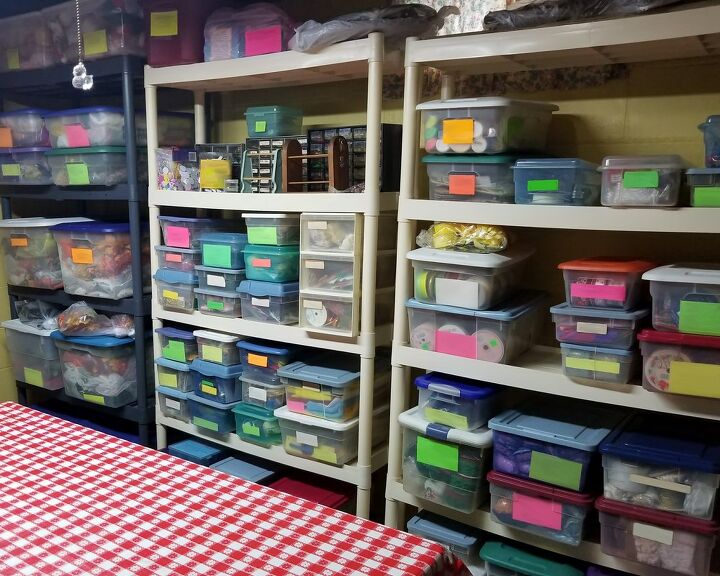






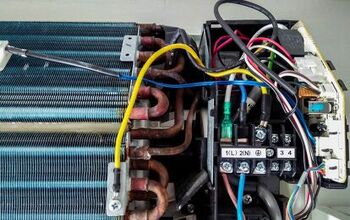
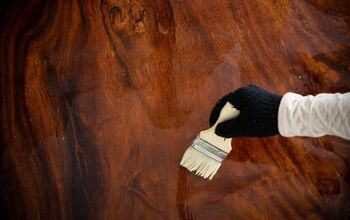
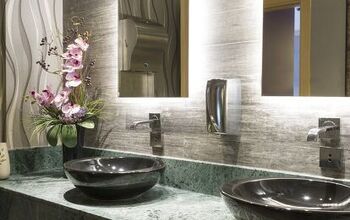

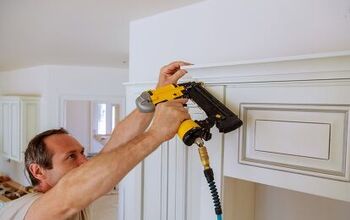
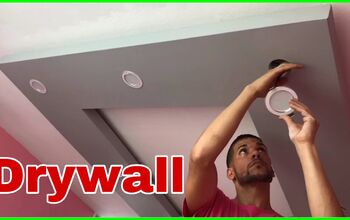





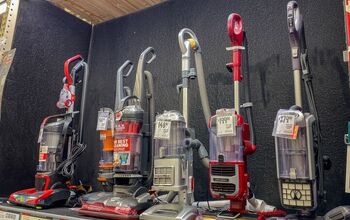
![10 Most Dangerous Neighborhoods in Baltimore [Updated]](https://cdn-fastly.upgradedhome.com/media/2023/07/31/9075655/10-most-dangerous-neighborhoods-in-baltimore-updated.jpg?size=350x220)
